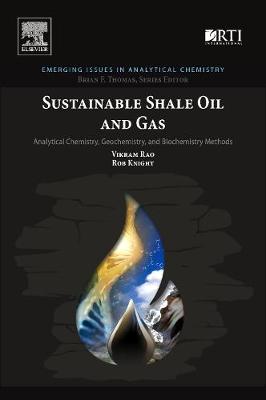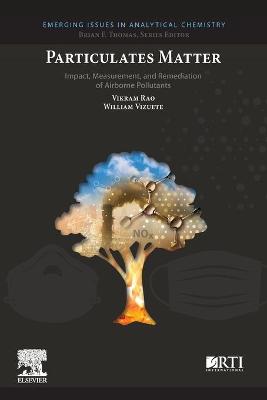Emerging Issues in Analytical Chemistry
2 total works
Shale oil and gas have altered the energy landscape, possibly permanently. They burst upon the fossil energy scene with a suddenness that initially defied prediction. Even the political balance of the world has changed. But, with the methods employed, the vast majority of the oil and gas remains in the ground. At the same time, serious environmental impact issues have been raised. A new volume in the Emerging Issues in Analytical Chemistry series, Sustainable Shale Oil and Gas: Analytical Chemistry, Geochemistry, and Biochemistry Methods was written on the premise that analytical methods to inform these areas were wanting. While not attempting to be comprehensive, it describes important analytical methods, some still in development. These methods are underpinned primarily by chemistry, but geochemistry and even biochemistry play significant roles. The book has a solutions flavor; problems are posed together with approaches to ameliorate them.
A title in the Emerging Issues in Analytical Chemistry series, Particulates Matter: Impact, Measurement, and Remediation of Airborne Pollutants provides the latest technical findings in the study of particulate matter (PM). It links these findings to awareness-raising and actionable schemes for legislated remediation and engineered solutions. Written in an engaging and informative manner, the book begins with a multi-disciplinary overview of the major sources and unique classes of PM, detection techniques, and their impact, including molecular changes resulting in health effects. It then goes one step further by proposing and examining the means to curtail and contain PM generation and ameliorate their impacts.
Particulates Matter: Impact, Measurement, and Remediation of Airborne Pollutants offers a high-quality reference guide to PM that will greatly benefit technology leaders in environmental compliance groups, epidemiologists and other public health professionals focused on pollution and health, and researchers and scholars working in pollution, climate change, and urbanization. It may also be useful to advanced undergraduate and early graduate students in environmental sciences.
Particulates Matter: Impact, Measurement, and Remediation of Airborne Pollutants offers a high-quality reference guide to PM that will greatly benefit technology leaders in environmental compliance groups, epidemiologists and other public health professionals focused on pollution and health, and researchers and scholars working in pollution, climate change, and urbanization. It may also be useful to advanced undergraduate and early graduate students in environmental sciences.

